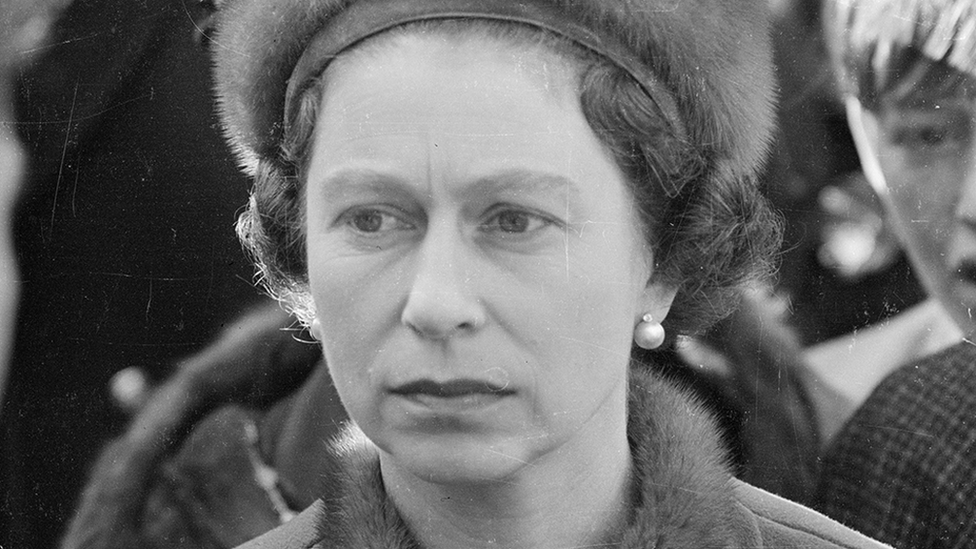King Charles III in Cardiff for first Wales visit as monarch
- Published
King Charles III speaks in Welsh in a historic moment for a monarch
King Charles III said Wales held a "special place" in the Queen's heart as he gave a speech in Welsh on his first visit as the new monarch.
He addressed members of the Welsh Parliament in a remembrance event at the Senedd as part of the King and Queen Consort's tour of the UK nations.
In a bilingual speech, King Charles gave the Senedd his "heartfelt thanks for your kind words".
He added that it had been a "privilege to be Prince of Wales for so long".
The King said Prince William, who was appointed Prince of Wales last week, had a "deep love" for the nation.
He said the "ancient title" dated to the time "of those great Welsh rulers like Llywelyn ap Gruffydd, whose memory is still rightly honoured".
Thanking Members of the Senedd for their condolences following the death of the Queen at the age of 96 last week, the King said that "through all the years of her reign the land of Wales could not have been closer to my mother's heart".
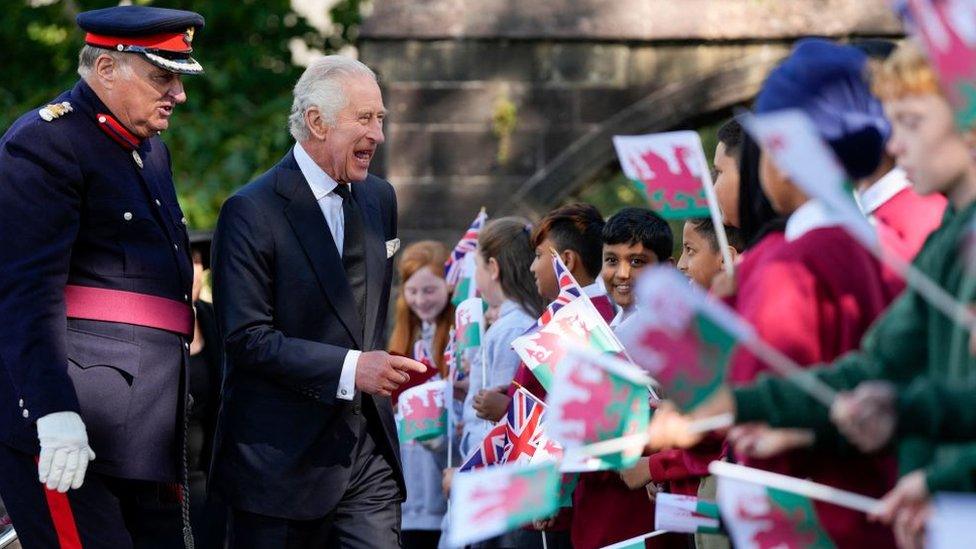
King Charles III meets schoolchildren and the rest of the crowds outside Llandaff Cathedral on his first visit to Wales as a monarch
"Roedd lle arbenig i Gymru yn ei chalon," he said, which translates as "Wales had a special place in her heart".
"Fel fy mam annwyl o'm blaen, rwy'n gwybod ein bod ni oll yn caru'r wlad arbennig hon," he added, which translates as "like my beloved mother before me, I know we all share a love for this special land".
As Prince of Wales, Charles often delivered passages of speeches in Welsh - including at the first official opening of what was then called the assembly, in 1999.
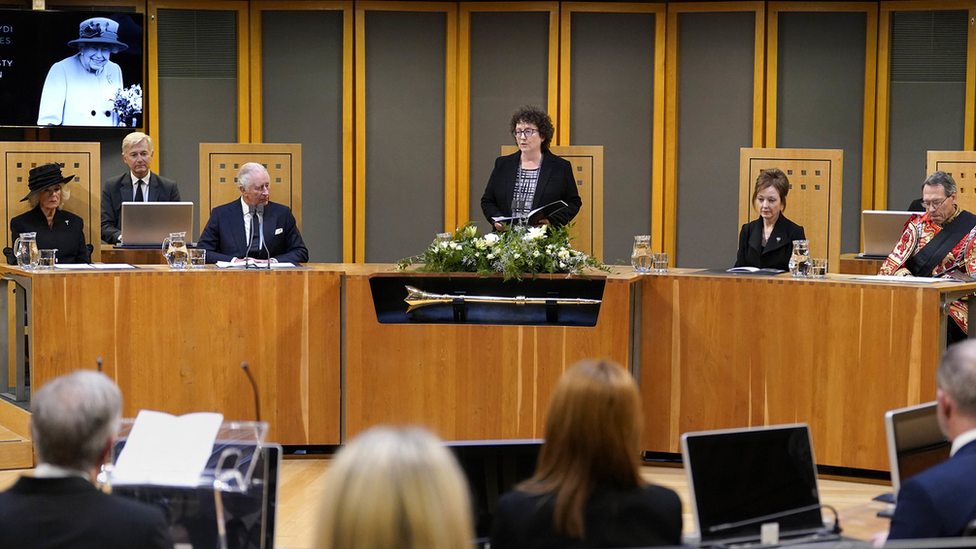
He told the Senedd it had been a "privilege to be Prince of Wales for so long"
He added in English: "I know she took immense pride in your many great achievements, even as she also felt with you deeply in time of sorrow.
"It must surely be counted the greatest privilege to belong to a land that could inspire such devotion.
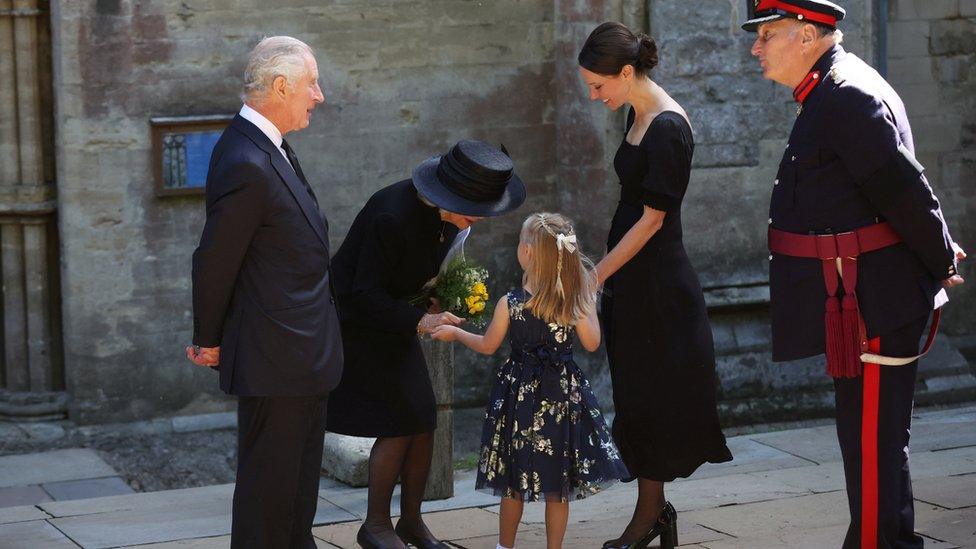
King Charles III and the Queen Consort received a posy of flowers from a five-year-old Keira Hillebert as they left Llandaff Cathedral
"Having visited the Senedd regularly since it was founded, and having heard your heartfelt words today, I know we all share the deepest commitment to the welfare of the people of this land, and that we will all continue to work together to that end."
First Minister Mark Drakeford said in his audience with the King on Friday, King Charles spoke of his concern about how people in Wales would cope in the coming months with the cost of living crisis.
Mr Drakeford told Talk TV: "He is concerned as to how people will manage through what is going to be a difficult winter.
"He was interested to tell me about some of the projects that he has heard of, or become involved in dealing, for example, with food waste, making sure that we don't waste a precious resource when some people might be going without."
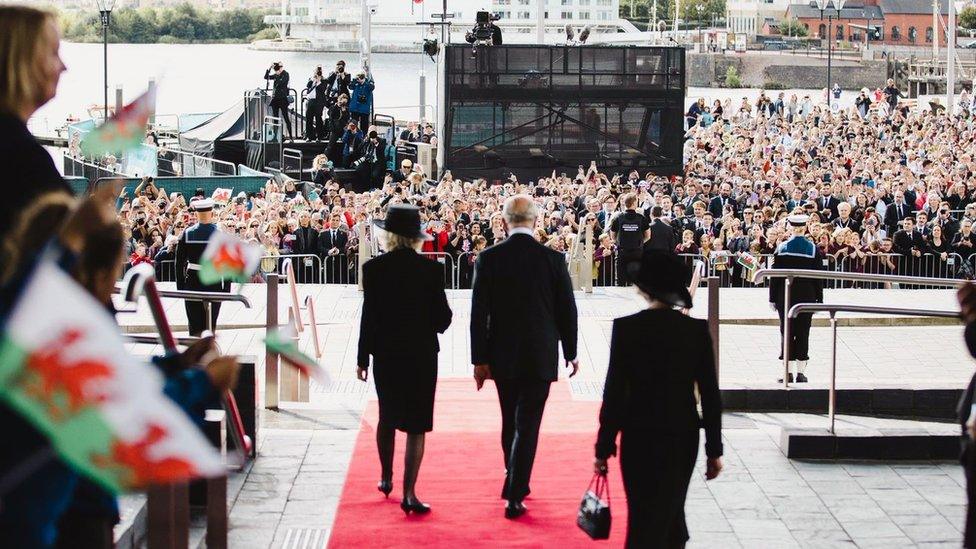
Hundreds of well wishers greeted the royal couple in Cardiff Bay, where they also met Welsh Youth Parliament members who told them about their work
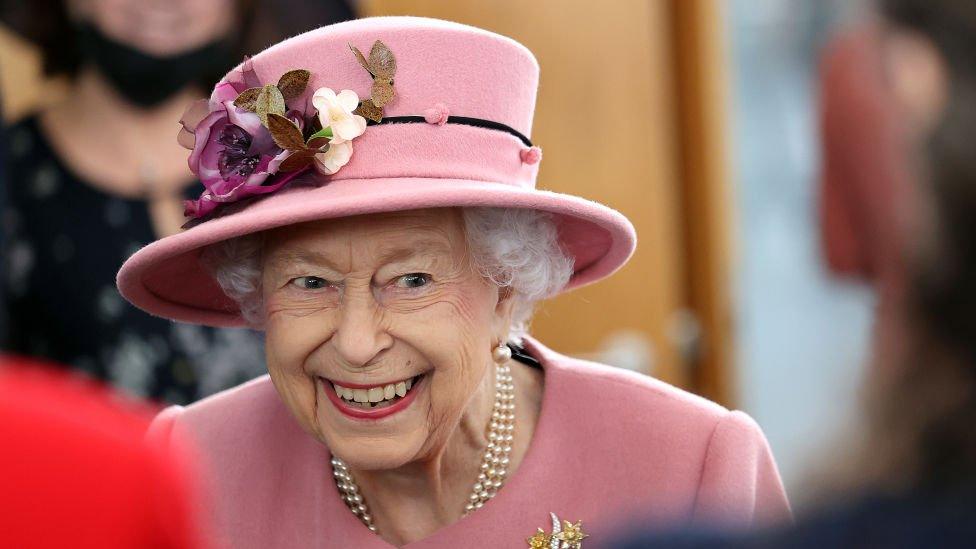
The last reigning monarch to visit Wales was Queen Elizabeth II when she officially opened the sixth Senedd term in October 2021
King Charles had Welsh lessons at Aberystwyth University before his investiture at Caernarfon Castle in 1969. His tutor was the academic Tedi Millward, a Welsh nationalist campaigner.
After Dr Millward's death in 2020, the then-Prince Charles paid tribute to him, but admitted he may not have been his finest pupil.
Elin Jones, the presiding officer of the Welsh Parliament, said the use of Welsh in the King's speech to the Senedd, was "hugely significant".
The Llywydd said it "shows the world that Wales has two languages".
"It's used by the King and used by the people on the streets as well, and that's a significant moment," she told BBC Wales.
The King went to Llandaff Cathedral, the Senedd and a reception at Cardiff Castle

Analysis by David Deans, BBC Wales political reporter
King Charles III's speech in the Senedd was a historic step for a British monarch.
While his mother Elizabeth spoke small phrases in the Welsh language, the King's speech on Friday was bilingual, switched from English to Welsh throughout.
It was a mark of respect by the monarch for the culture of Wales, in the similar way that the entire visit was recognition of the place the Welsh Parliament and government have in the UK constitution.
King Charles III was the longest serving Prince of Wales before he became monarch
Both are important in the context of a language which activists had fought in the past to protect, and institutions that had a rocky few early years at the dawn of devolution 23 years ago.
It is unlikely to be enough to change views on the monarchy, like those held by the protesters outside Cardiff Castle on Friday.
However, there have been few expressions of republicanism in this period of mourning from senior figures in Welsh public life.
That is despite the personal views of First Minister Mark Drakeford and Senedd Presiding Officer Elin Jones - both republicans who have taken a full part in this week's proceedings.

King Charles arrived in Cardiff via helicopter from his Gloucestershire home of Highgrove following a day of rest after a week of duties since the death of the Queen.
He and the Queen Consort were greeted by a gun salute at Cardiff Castle as they set foot on to Welsh soil.
A gun salute takes place at Cardiff Castle to honour new king
Hundreds of people lined the streets of Llandaff to greet the King and Queen Consort with cheers and flag waving on their way to a prayer and reflection service for the Queen at the Llandaf Cathedral.
A fanfare of trumpeters from the Regimental Band of the Royal Welsh greeted the King at the cathedral's west door before Mr Drakeford gave a reading from the Old Testament.
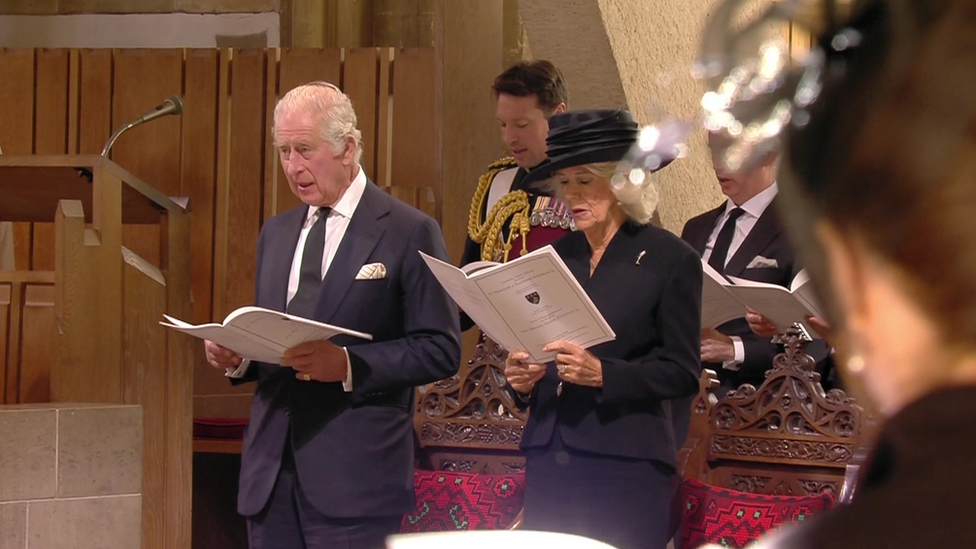
King Charles III and the Queen Consort sang a number of hymns during the service, including traditional Welsh song Cwm Rhondda
Archbishop of Wales, the Most Rev Andrew John, delivered an address to the congregation - which included Prime Minister Liz Truss in her first visit to Wales as prime minister - in both English and Welsh.
Paying tribute to her "extraordinary legacy of service and devotion", the archbishop said the Queen had transformed the monarchy and provided a reassuring constancy through the decades.
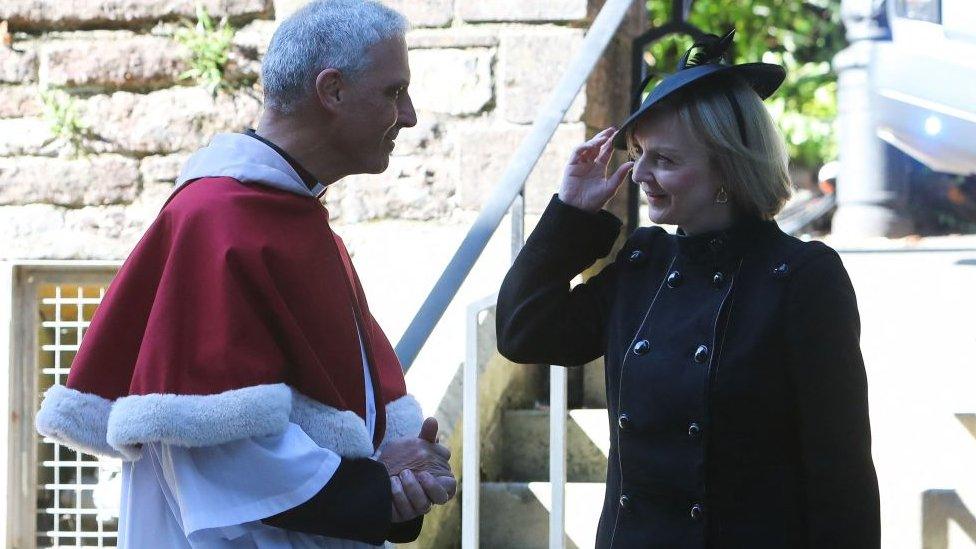
Prime Minister Liz Truss is greeted by Dean of Llandaff Cathedral Michael Komor on her arrival
The archbishop said the late Queen's skilful use of "soft power" came to the fore during her visits to Aberfan after the disaster there in 1966 when the community found her presence "deeply consoling".
The hour-long service included hymns Pantyfedwen (Tydi A Wnaeth Y Wyrth), God is Love Let Heaven Adore Him and Cwm Rhondda and their visit to Llandaff ended with King Charles and the Queen Consort meeting schoolchildren in the crowd as they left the cathedral.
Grace said she felt really excited and really pleased that she got the opportunity to meet the king
The King and Queen Consort attended a condolence event for the late Queen Elizabeth II at the Senedd in Cardiff Bay before a reception at the city's castle.
The royal couple met military personnel and faith leaders there, while Aberfan Wives group were also among those invited.
Denise Morgan and Gloria Davies said the Queen had made a "bond" with the mining village after the disaster, when 116 children and 28 adults killed where killed when a colliery spoil tip collapsed, catastrophically engulfing a primary school and surrounding houses.
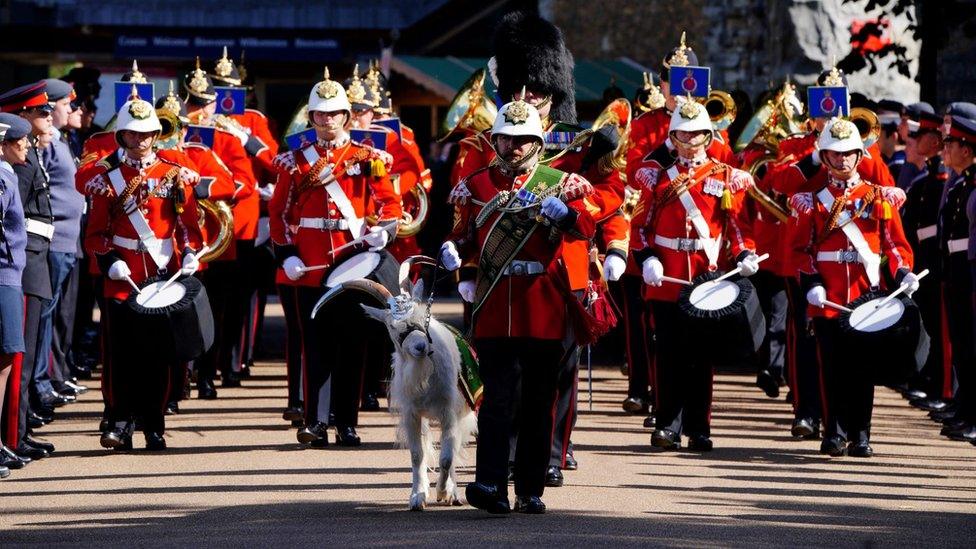
The Band of the Royal Welsh, joined by military goat Lance Corporal Shenkin IV, played the national anthem
Ms Morgan said the Queen's visit to the village eight days after the tragedy was "at the right time", adding: "I don't think she came as the Queen, I think she came as a mother too.
"Because she looked around and she could see the devastation and the look on people's faces."
Ms Morgan said she believed the King would "continue that bond with Aberfan and the people of Aberfan".
The Band of the Royal Welsh played the national anthem as the royal couple made their way to the front of the castle, with military goat Lance Corporal Shenkin IV stationed at the front.
After cries of "God save the King", the King smiled and waved before heading into the castle for an audience with Wales' First Minister Mark Drakeford.
But there were also boos and chants of "not my king" as the King entered the castle, in the city centre.
This was the moment King Charles III arrived at Cardiff Castle with Camilla, the Queen Consort
About 100 protesters were stood next to the castle gates, and another group opposite held up placards saying "no to monarchy, no to Charles" and "democracy now".
The protestors were being led by former Plaid Cymru Senedd member Bethan Sayed.
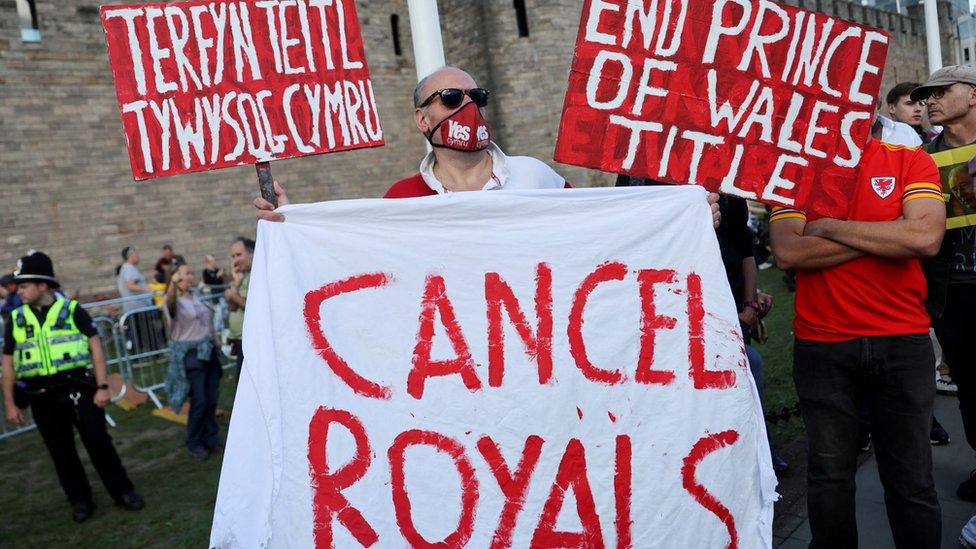
Protesters were heard booing and chanting as King Charles entered Cardiff Castle
The King is a familiar face in the country, having visited regularly in his former role as the Prince of Wales.
It was his second visit to the Senedd in less than a year. In October 2021, he opened the new term of the Welsh Parliament, along with Camilla, now Queen Consort, and the Queen in her last visit to Wales.
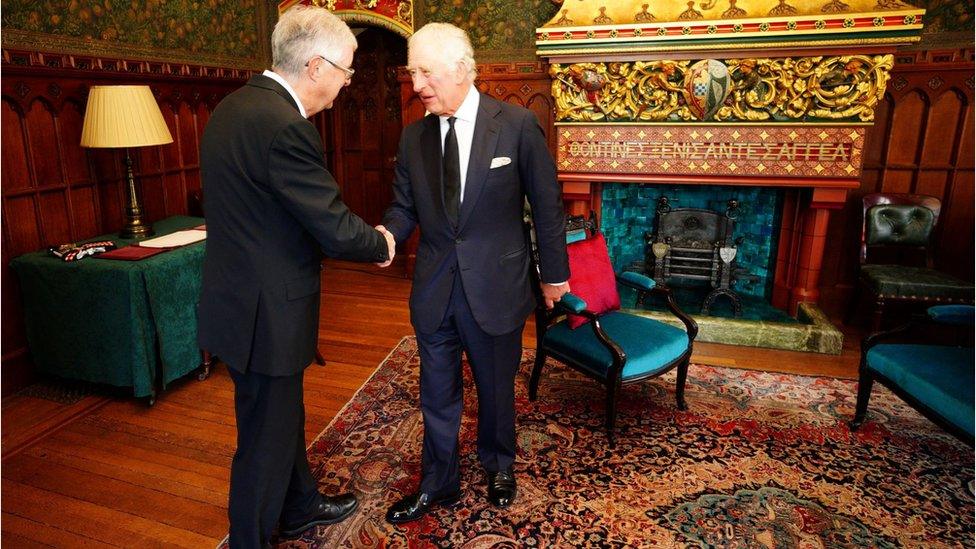
King Charles had an audience with First Minister Mark Drakeford at Cardiff Castle
- Published16 September 2022
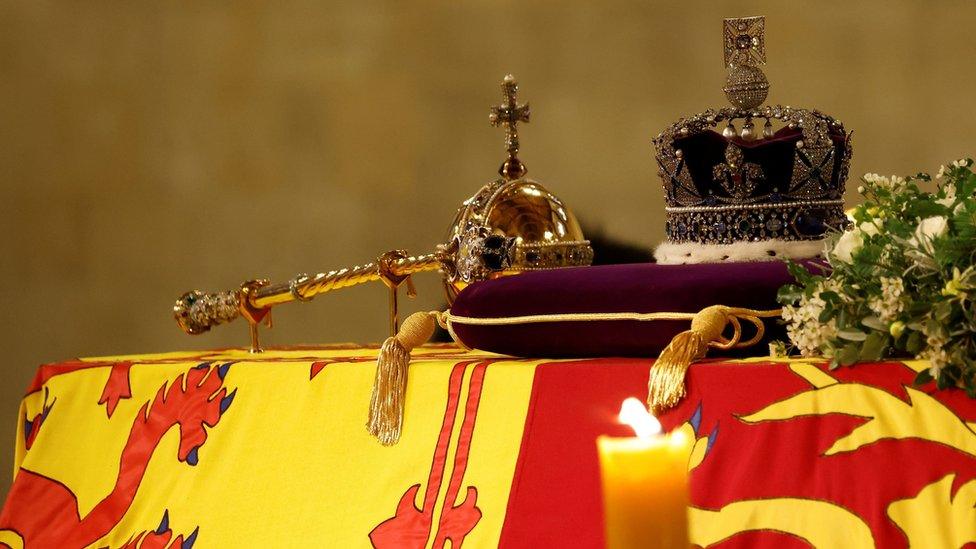
- Published19 September 2022
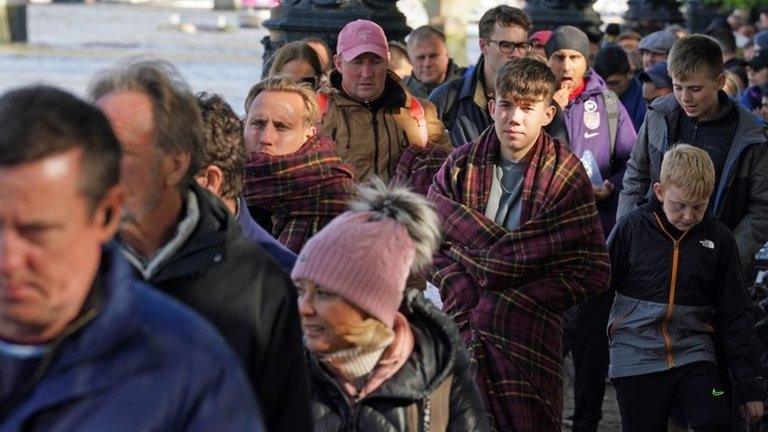
- Published15 September 2022
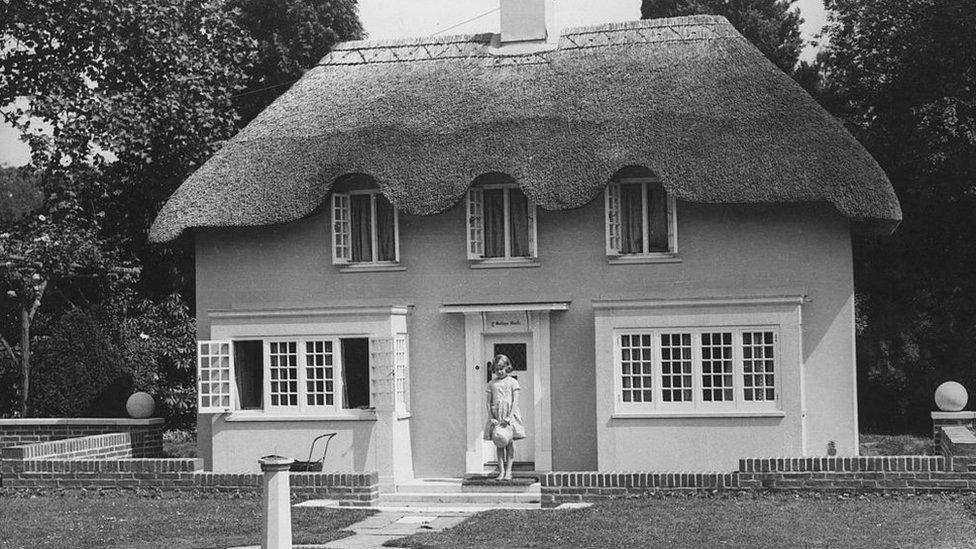
- Published19 September 2022
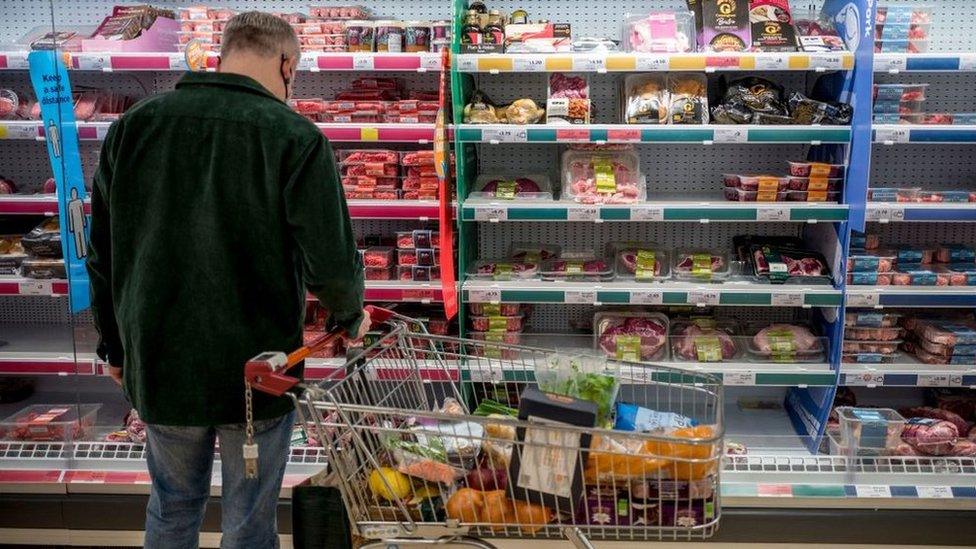
- Published11 September 2022
